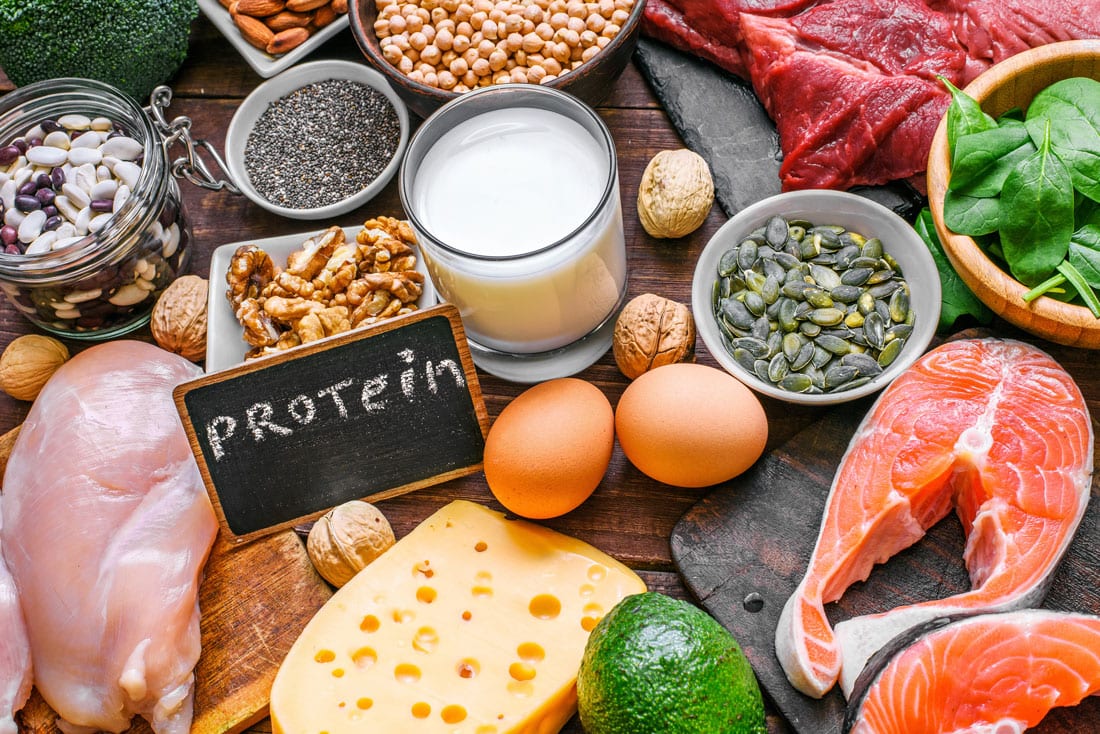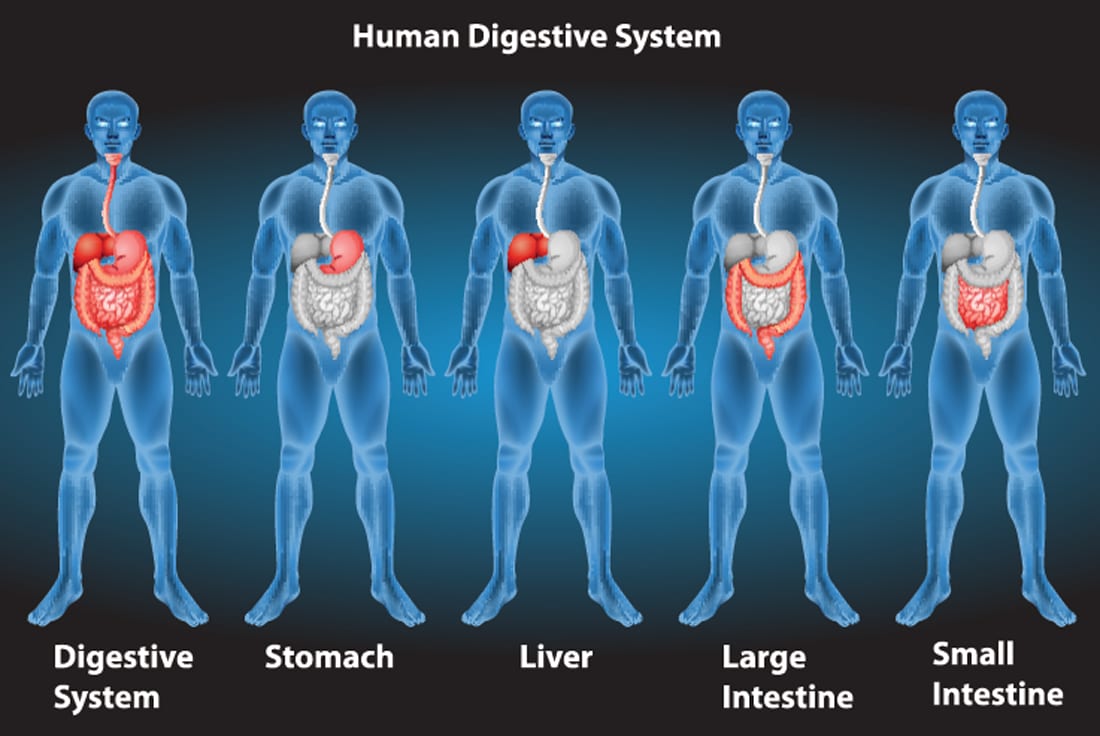
Consuming an adequate quantity of protein is recommendable for both weight gain and weight loss. According to the Dietary Guidelines for Americans, an individual’s daily calories should include 10 to 35% of protein. Also, about 0.8 grams per kilogram of body weight is the recommended allowance of protein per day.
You should know that athletes tend to benefit more from protein consumption when it comes to maximizing muscle growth. This is because they are consistently engaged in weightlifting and resistance training.
The two routines are beneficial for the consumption of 1.3 to 1.8 grams per kilogram of body weight daily. With this figure, an active 180-pound male need to digest around 106 to 107 grams of protein daily for muscle growth. An active 140-pound woman should consume 83 to 114 grams.
Now, let’s consider the optimal timing for protein consumption. Consuming the recommended daily intake of protein is one thing; the timing is another. Research has shown that the period of protein consumption can make a difference. It is still unclear whether to consume protein immediately after workout for enhanced muscle growth or not.
But studies revealed that eating protein at night before bed helps to increase muscle growth.
We’ll discuss the science behind how protein consumption at night helps improve muscle growth. Before then, it is pertinent that you understand what exactly handles muscle growth
What makes muscles grow?

According to fitness specialists, muscles grow by stressing them progressively over time. Also, the amount of stress helps muscle growth. – this is from a fitness perspective. Based on a nutrition perspective, muscle grows from two points. Firstly, when the body gains a considerable amount of energy from the diet, and secondly, the current stored energy within the body.
Also, the ingestion of enough dietary protein enhances the development of muscle. This results in a higher level of muscle protein synthesis (MPS) compared to the amount of muscle protein breakdown (MPB) over a period. Thus, adequate training helps stimulate muscle growth. But proper diet offers the “fuel” that enables muscle growth.
The science behind eating protein at night for muscle growth
Whenever protein breaks down, it produces amino acids that help develop muscles. During slumber, the human muscle is capable of repairing itself while the growth hormone also rises in the same period. The hormone boosts muscle growth and reduces fat.
Studies show that consuming an ample amount of protein before sleeping helps benefit from the growth hormone. Also, it optimizes muscle gains. This is because the body provides the amino acids needed for muscle repair and growth through the consumed protein.
Also, you should know that an average-sized meal containing an adequate amount of protein helps increase MPS for close to 5 hours. However, a high protein or frequent intake doesn’t mean you will get more muscle protein synthesis due to the refractory period.
Likewise, eating a lesser amount of protein or infrequently will not result in getting the most out of muscle protein synthesis. Besides, research shows that an even distribution of protein over a few main meals across the day stimulates the MPS more than having most of your daily protein in one meal.
Thus, it is better to share your daily protein proportionately in three to five servings across the day,
In a study conducted in 2012, scientists observed the effect of protein consumption before bed in sixteen healthy young males. In the evenings, the males would engage weightlifting, then consume 20 grams of protein after the routine.
Additionally, before sleep, among the men, eight will consume a beverage containing 40 grams of casein. In the end, muscle protein synthesis rates increased in the eight men. With this outcome, it becomes clear that protein fosters post-exercise overnight recovery.
Also, research conducted in 2015 studied 44 young men during a 12-week resistance training program. Every participant consumed 1.3 grams of protein per kilogram body weight. Among the 44 participants, one group had to take 27.5 grams of protein and 15 grams of carbohydrate while another group took a placebo drink.
The result showed that the grouped that consumed the protein-rich drink experienced significant improvement concerning muscle size, strength, and fiber. While the group that had a placebo drink showed little improvement.
International Society of Sports Nutrition (ISSN) explained that 30 to 40 grams of casein protein before bed could significantly increase muscle protein synthesis (MPS) and metabolic rate overnight. Thus, ISSN recommends consuming protein before bed for athletes who perform exercise early in the morning without eating. Also, it is advisable for those who train in the evening after dinner. Besides, a study showed that consuming protein snacks before sleep help improves metabolism.
The intake of protein before bed has many benefits. You will be stimulating muscle protein synthesis during the night time aside from the daytime synthesis. Also, since night time is a prolonged post-absorptive period, it gives more time to stimulate muscle protein synthesis. Hence, try to advise trainees, who would like to optimize their muscle growth, to get the most out of every opportunity in stimulating muscle protein synthesis, even before the pre-sleep period.

Protein to eat Before Bed: Type and Amount of Protein that you should take
From the discussion above, obviously, most extended post-absorptive period of the day is during the night while sleeping. Hence, endeavor to know what type of protein to eat and the amount before going to bed. By so doing, you can get the most out of the overnight MPS response.
When it comes to the type of protein to consume, several kinds of protein are available. Some proteins can be digested slowly, such as micellar casein and animal-based protein sources. And others, such as whey and casein hydrolysate, need more time to breakdown.
A slowly-digesting protein taken before bed will result in a less pronounced effect. But it offers a prolonged increase in blood levels of amino acids. As a result, it supports muscle protein synthesis during the entire night. Thus, having whey and casein-containing meals are recommendable. Several studies have worked on protein to consume before bed. The outcomes suggest about 40 grams of protein.

The type Protein to eat before bed
If you intend to boost your muscle growth by taking bodybuilding snacks before bed, 20 to 40 grams of protein is recommendable for an average adult. Some protein sources to consider include poultry, tofu, eggs, nuts, fish, seafood, legumes, lentils, and peas. Greek yogurt, ricotta cheese, and cottage cheese are also good. You can gain 20 grams of protein by preparing three ounces of chicken, one cup of cooked beans, 90-percent lean ground beef, and salmon.
Some bodybuilding snacks before bed worth trying out include:
- Hard-boiled eggs (3)
- One serving container of plain Greek yogurt and berries
- One cup of 1% milkfat cottage cheese
- One slice of bread and peanut butter with a glass of 1% milk
Other high-protein recipes that you can prepare during your leisure time include:
- Bruschetta chicken with colorful cherry tomatoes and basil
- Ultimate vegan protein burrito combined with quinoa and black beans.
- A braised lentil with vegetable and crusty bread.
- Mushroom bison sliders and melted cheese with a slice of tomato.

Recommendation
If you want to maximize muscle growth by consuming protein before bed, endeavor to consider the following tips:
Schedule having 1 gram per pound of lean body mass for your overall daily protein intake.
Share your overall daily protein intake evenly among three to five servings per day.
Ensure that your three to five protein servings are distributed evenly across the day.
You should have some protein once you wake up, after your exercise routine and before sleeping at night.
Ensure that your protein-serving before bed at night include mostly slow-digesting protein. You can consider dairy, eggs, meats, and casein.

Final Say
Dietary protein ingestion before sleep is useful to facilitate muscle growth. Also, it helps inhibit muscle protein breakdown and stimulates muscle protein synthesis.
If you intend to enhance your skeletal muscle adaptive response to training, take a considerable amount of bodybuilding snacks before bed.
Finally, eating protein at night helps improve your overall exercise training effectiveness.
Other Articles you may like.
Hamstrings and Calves Stretch
Often hamstrings and calves can become tight as a result of poor posture, always sitting down as a result of our inactivity sedentary lifestyle. This lifestyle shortens the gip flexor muscles cause the hamstrings to tighten.
Abdominal Ball Crunch with Twist
The Abdominal Ball Crunch with Twist requires controls and strength to undertake. The ball provides lots of lateral movement that requires the core intelligence to work. This exercise helps tone the tummy muscles as well as strengthening your spinal muscles that will...
Ab Hip Raise
The Abdominal Hip Raise, Ab Hip Raise, or often referred to as “The Bridge” is designed to strengthening the core abdominal muscles and Quads. These muscles support the lower back, spine and help with your posture. Find out more.






